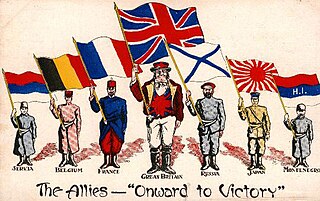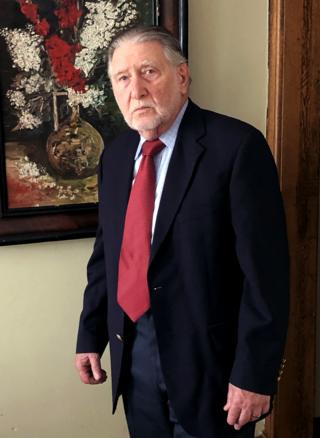Publications
The Association publishes two journals: Nations and Nationalism , one of the most cited in the field, and Studies in Ethnicity and Nationalism (formerly The ASEN Bulletin), which publishes research from young scholars, junior faculty, post-doctoral researchers and graduate students.
The first issue of Nations and Nationalism was published in March 1995. In their editorial for that issue, Anthony D. Smith, Obi Igwara, Athena Leoussi, and Terry Mulhall described the need for a journal devoted to the study of nations and nationalism, and identified the three basic aims of the journal as: "(1) to be the vehicle of new research, both theoretical and empirical, and act as a forum for the exchange of views in the field; (2) to identify and develop a separate subject-area as a field of study in its own right, and unify the body of scholars in the field; [and] (3) to bring to the attention of the wider scholarly community, and the public, the need to treat the subject-area as a well-defined field of interdisciplinary study, which requires the collaboration of scholars from a variety of intellectual backgrounds." [3]
Nations and Nationalism has been selected to be indexed in the Current Contents: Social & Behavioral Sciences Index and the Social Sciences Citation Index , but the impact factor has not yet been announced. [4]
A nation is a type of social organization where a collective identity, a national identity, has emerged from a combination of shared features across a given population, such as language, history, ethnicity, culture, territory or society. Some nations are constructed around ethnicity while others are bound by political constitutions.
An ethnicity or ethnic group is a group of people who identify with each other on the basis of perceived shared attributes that distinguish them from other groups. Those attributes can include a people of a common language, culture, common sets of ancestry, traditions, society, religion, history, or social treatment. The term ethnicity is sometimes used interchangeably with the term nation, particularly in cases of ethnic nationalism.

A seminar is a form of academic instruction, either at an academic institution or offered by a commercial or professional organization. It has the function of bringing together small groups for recurring meetings, focusing each time on some particular subject, in which everyone present is requested to participate. This is often accomplished through an ongoing Socratic dialogue with a seminar leader or instructor, or through a more formal presentation of research. It is essentially a place where assigned readings are discussed, questions can be raised and debates can be conducted.

National identity is a person's identity or sense of belonging to one or more states or one or more nations. It is the sense of "a nation as a cohesive whole, as represented by distinctive traditions, culture, and language".
Historiography is the study of how history is written. One pervasive influence upon the writing of history has been nationalism, a set of beliefs about political legitimacy and cultural identity. Nationalism has provided a significant framework for historical writing in Europe and in those former colonies influenced by Europe since the nineteenth century. Typically official school textbooks are based on the nationalist model and focus on the emergence, trials and successes of the forces of nationalism.
The Pakistan Institute of Development Economics is a post-graduate research institute and a public policy think tank located in the vicinity of Islamabad, Pakistan.
Anthony David Stephen Smith was a British historical sociologist who, at the time of his death, was Professor Emeritus of Nationalism and Ethnicity at the London School of Economics. He is considered one of the founders of the interdisciplinary field of nationalism studies.

Bendheim Center for Finance (BCF) is an interdisciplinary center at Princeton University. It was established in 1997 at the initiative of Ben Bernanke and is dedicated to research and education in the area of money and finance, in lieu of there not being a full professional business school at Princeton.
California Cultures in Comparative Perspective is a program at the University of California, San Diego in California dedicated to fostering creative and activist interdisciplinary research, teaching, and collaboration among California's communities, faculty, and students. California, in all its dimensions, is the object of its focus.
The University of Heidelberg's Heidelberg Center for American Studies (HCA) is a higher education and research center. It was founded in 2004, making it the newest institute of Germany's oldest university. The Heidelberg Center for American Studies opened its first office in the spring of 2003. By October 2004, HCA was officially inaugurated. In the summer of 2006 the HCA moved into its present offices located in a historic building in the old city center of Heidelberg- Curt und Heidemarie Engelhorn Palais, Hauptstraße 120, 69117 Heidelberg. The institute is funded through public and private financial partnership. The founding director and former director of the institute is Prof. Dr. Dr. h.c. Detlef Junker. In February 2018, Prof. Dr. Welf Werner became the second director of the HCA and was also appointed Professor of American Studies at the Faculty of Economics and Social Sciences HCA makes exceptional contribution to interdisciplinary academic and cultural expertise on the United States in Europe. Through public lectures, debates, exhibitions, and panel discussions, the institute educates and provides the public with credible insight on the United States as a nation, and an important transatlantic partner. The Center facilitates discussions between academia and the public, creates and strengthens transatlantic networks. The HCA offers B.A., M.A., and Ph.D. programs in American studies. Students are competitively selected, receive first class education and are mentored by highly qualified professors/scholars.
The Institute for Social and Economic Research and Policy (ISERP) is the research arm of the social sciences at Columbia University, formerly known as the Paul F. Lazarsfeld Center for the Social Sciences. ISERP works to produce pioneering social science research and to shape public policy by integrating knowledge and methods across the social scientific disciplines. ISERP organizes an active intellectual community at Columbia University through its Faculty Fellows program, research centers, projects, and training initiatives.
Walker F. Connor was Distinguished Visiting Professor of Political Science at Middlebury College. Connor is best known for his work on nationalism, and is considered one of the founders of the interdisciplinary field of nationalism studies.
Cultural nationalism is a term used by scholars of nationalism to describe efforts among intellectuals to promote the formation of national communities through emphasis on a common culture. It is contrasted with "political" nationalism, which refers to specific movements for national self-determination through the establishment of a nation-state.

Studies in Ethnicity and Nationalism (SEN), formerly The ASEN Bulletin, is a scholarly interdisciplinary peer-reviewed academic journal covering research on ethnicity and nationalism. It is published biannually on behalf of the Association for the Study of Ethnicity and Nationalism, by Wiley-Blackwell. The journal covers a wide range of topics, including the sources and nature of ethnic identity, minority rights, migration and identity politics - topics which remain central to the modern world. The journal approaches the complexity of these questions from a contemporary perspective and, based on the latest scholarship, draws on a range of disciplines including political science, sociology, anthropology, economics, international relations, history and cultural studies. The journal is indexed in the Web of Science Emerging Sources Citation Index (ESCI), has 0.73 Scopus CiteScore (2018), and ranks 487 out of 1,111 journals in Sociology and Political Science.

Nationalism studies is an interdisciplinary academic field devoted to the study of nationalism and related issues. While nationalism has been the subject of scholarly discussion since at least the late eighteenth century, it is only since the early 1990s that it has received enough attention for a distinct field to emerge.
John Hutchinson is a British academic. He is a reader in nationalism at the London School of Economics (LSE), in the Department of Government.
Ethnosymbolism is a school of thought in the study of nationalism that stresses the importance of symbols, myths, values and traditions in the formation and persistence of the modern nation state.
Gellner's theory of nationalism was developed by Ernest Gellner over a number of publications from around the early 1960s to his 1995 death. Gellner discussed nationalism in a number of works, starting with Thought and Change (1964), and he most notably developed it in Nations and Nationalism (1983). His theory is modernist.
Several scholars of nationalism support the existence of nationalism in the Middle Ages. This school of thought differs from modernism, the predominant school of thought on nationalism, which suggests that nationalism developed largely after the late 18th century and the French Revolution. Theories on the existence of nationalism in the Middle Ages may belong to the general paradigms of ethnosymbolism and primordialism (perennialism).

Jerome Krase is a professor emeritus of sociology at the Murray Koppelman School of Business and professor at School of Humanities and Social sciences at Brooklyn College. He was also president of the European Academy of Sciences of Ukraine.






